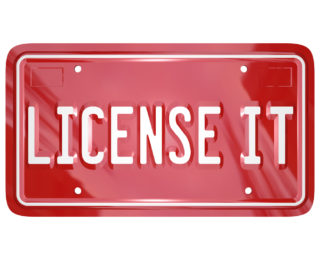 Last week I had the pleasure of attending the International Trademark Association’s (INTA) Annual Meeting in Seattle, where trademark practitioners from around the world convened to geek out on all things brand-related. One of the prevalent topics of conversation was trademark licensing. While we’ve discussed at length some of the challenges of entering into Intellectual Property (“IP”) licensing deals in the cannabis industry, I thought it would be helpful to discuss a few of the key licensing terms discussed at INTA that should be negotiated in any trademark licensing deal, regardless of the industry.
Last week I had the pleasure of attending the International Trademark Association’s (INTA) Annual Meeting in Seattle, where trademark practitioners from around the world convened to geek out on all things brand-related. One of the prevalent topics of conversation was trademark licensing. While we’ve discussed at length some of the challenges of entering into Intellectual Property (“IP”) licensing deals in the cannabis industry, I thought it would be helpful to discuss a few of the key licensing terms discussed at INTA that should be negotiated in any trademark licensing deal, regardless of the industry.
- Royalties
How payment will be structured is a pillar of any trademark licensing deal, and the way that royalties are structured can often be a source of contention between the licensee and licensor. In the cannabis industry, you’ll need to contemplate what royalty structures are permissible under state cannabis laws, and what implications a royalty based on revenue will have on your state cannabis license. For example, in Washington State, a licensing deal with a royalty structure based on profits or revenue would trigger the “true party of interest” requirements under the Liquor and Cannabis Board’s regulations. In California and Oregon, taking a royalty based on revenue or profit will qualify you as a “financial interest holder” in a licensee.
Other considerations include whether to ask for a lump sum payment up front (which is something that a licensor may be in favor of, but that might be burdensome to a start-up licensee). You’ll also need to determine the frequency of payments and what kind of accounting must be provided to the licensor.
- Use of the licensed assets
In general, a licensor will want to exercise as much control as possible over the use of the licensed IP, where a licensee will likely prefer more flexibility. This can be a particularly difficult issue in a highly regulated industry like cannabis, where state regulations often limit the control a licensor can exercise over certain elements of the use of the IP. It is therefore critical for both parties to have a solid grasp of state cannabis regulations as they pertain to the use of the licensed IP.
- Quality control
As with use of the licensed assets, a licensor will want to maintain as much control over the quality of the products sold under its licensed brand(s) as possible. In fact, licensors must exercise sufficient control over the quality of the products made pursuant to the license, or risk losing their trademark rights to abandonment. A licensee on the other hand will typically prefer less stringent quality control provisions and will at least seek provisions that provide it with an opportunity to cure or mitigate before license termination. A licensor may require that provisions granting an opportunity to cure be limited in certain ways, such as in the event of a breach that would cause serious reputational harm to the licensor.
- Indemnification
Indemnification and limitation of liability are often heavily negotiated, where a licensor will both parties will typically require indemnification from the other for a variety of IP infringement and product liability problems.
- Morality
This is one of the more interesting topics that was discussed at INTA, and is one that seems particularly relevant given many current events. A morality clause may be included in any licensing agreement, but is particularly relevant in agreements involving individual celebrities that are collaborating with brands. These agreements are becoming more and more prevalent in the cannabis industry. A morality clause will provide for termination of the agreement in situations where a party’s moral conduct does not conform with the standards provided for in the agreement. This could be limited to criminal acts, but need not be. The key is to clearly spell out all scenarios that could lead to termination in the agreement, and if a party to an agreement poses particular concerns to the other side, those concerns may be addressed through a morality clause.
Cannabis licensing deals are unique, and although these types of clauses may appear in any licensing agreement, the ways in which the parties approach them will be different, and will vary from jurisdiction to jurisdiction. As always, this makes it critical to incorporate a cannabis regulatory analysis into any IP licensing deal.
For more on cannabis IP licensing, check out the following:
- Marijuana Licensing Works Well When Done Well
- Cannabis IP Licensing 101
- Cannabis Franchising vs. Trademark Licensing: Get it Right or Face the Consequences
- Cannabis Intellectual Property Licensing: How to Avoid Litigation
- Cannabis IP Licensing Deals and SB 5131























